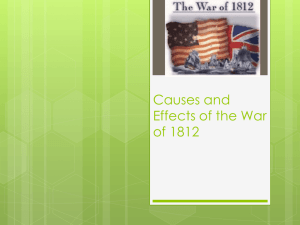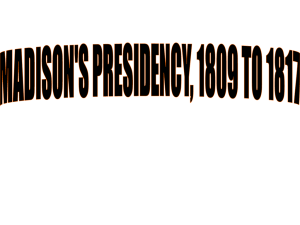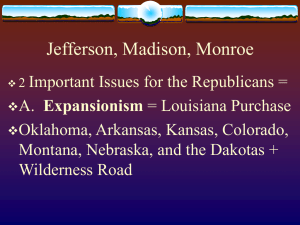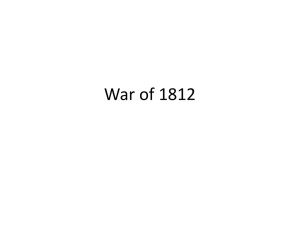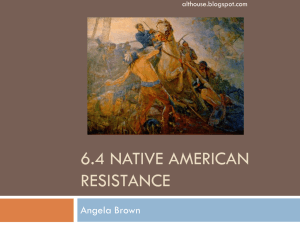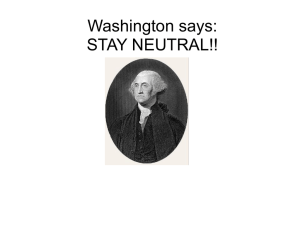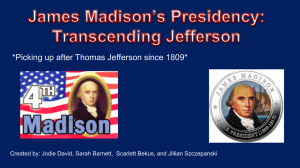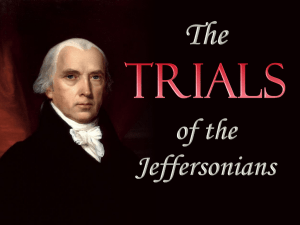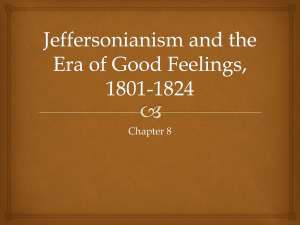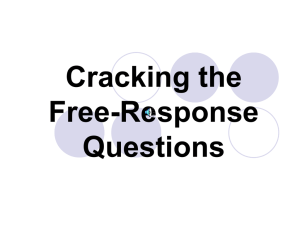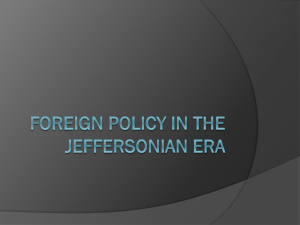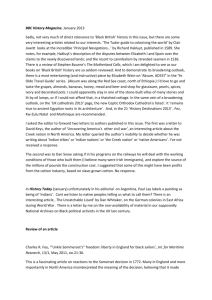Explain the influence of three of the following on the US decision to
advertisement
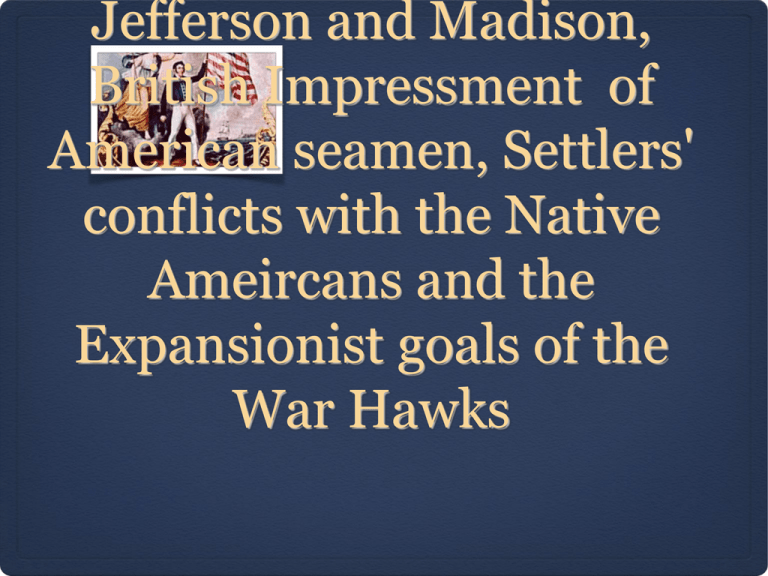
Jefferson and Madison, British Impressment of American seamen, Settlers' conflicts with the Native Ameircans and the Expansionist goals of the War Hawks Thesis • The influencing factors that made the US participate in the War of 1812 were the British impressment of American seamen, settlers's conflicts with the Native Americans, and the expansionist goals of the War Hawks. British Impressment of American Seamen • Impressment was the practice of forcing men into service with the navy • The 1806 Orders of Council included orders to blockade French and allied ports which included America • Nearly 9,000 men claiming American citizenship were impressed leading up to and including the War of 1812 Impressment • The Chesapeake affair was an important factor that started the War of 1812. 3 American crew members were killed by a British ship attempting to impress deserters aboard the ship. • Impressment was important because it turned public opinion against Britain and it humiliated America because they couldn't protect American ships or sailors. Settlers' conflicts with Native Americans • The British wanted to stir up trouble among the Native Americans and keep the Americans from settling past the Appalachian Mountains. • Frontiersmen and war-hawks believed that "scalp buyers" in Canada were strengthening an Indian movement. • Regardless, Americans continued to move into the trans-Allegheny wilderness, which pushed the Native Americans further West. • Shawnee brothers, Tecumseh and Tenskwatawa ("the Prophet") formed a confederacy of tribes east of the Mississippi. • Followers gave up alcohol and went back to traditional style of dress. • The confederacy vowed never to cede land to whites unless all of the Indians agreed. • In 1811, William Henry Harrison, governor of the Indiana Territory, gathered an army and advanced on Tecumseh's headquarters at the junction of the Wabash and Tippecanoe Rivers. Tecumseh was elsewhere, gathering support, when Tenskwatawa attacked Harrison's army with a small group of Shawnees. Battle of Tippecanoe • Harrison won the battle and became a national hero. • Discredited Tenskwatawa and drove Tecumseh into an alliance with the British. Created further resentment for British, who hindered ••Battle of Tippecanoe, western expansion. chromolithograph by Kurz & Allison, 1889. • http://www.stephensonhouse.org /BenWar1812.asp Expansionist goals of the War Hawks role in the participation; they were the primary force that accounted for Madison's decision to enter the War of 1812. • The War Hawks were a political group that felt that the US should become imperialistic and gain as much foreign land as possible. • The War Hawks pushed for the US to add Canada and Florida to its territory. They were mainly interested in westward expansion and were angry with the British for closing trade channels with America and considered the treatment British treatment of American sailors to be illegal. • They also wanted the US military to take further What eventually happened • The 11th Congress met in December of 1811- they selected Henry Clay to be the speaker. • President James Monroe reluctantly supported the Congress's desire to go to war against Great Britain, meaning that they encouraged the US to participate in the War of 1812 • The War of 1812 turned out to be a disaster- Clay was in Belgium trying to negotiate a peace treaty; British troops overran Washington and burned down the Capitol. • Clay's Peace treaty did no good and eventually, the war hawks' goals weren't achieved. Conclusion • In conclusion, these influencing factors of impressment, native conflicts, and the expansionist goals of the War Hawks forced the United States into war. They had to defend themselves from Britain, which suited the War Hawks who wanted to expand the nation's borders.
